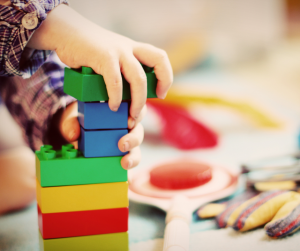What is autism spectrum disorder (ASD)?
Autism spectrum disorder (ASD) is a condition that is now estimated to affect at least 1 in 100 children. It is a spectrum disorder, meaning that it describes a wide range of behaviours, symptoms and in some cases, disabilities. A child with an extreme version of ASD may never talk, become toilet trained, attend a mainstream school or be able to look after himself. Another child with ASD may attend a mainstream school, be very articulate and, in adulthood, support himself financially. However, one area that may provide challenges for all children with ASD, wherever they happen to be on the spectrum, is social interaction and relationships.
Why might a child with ASD come for support?

The aim when supporting a child with ASD is not to somehow magically turn them into a neurotypical child. Rather, it is to make life for the child as easy as it possibly can be. In spite of the fact that society is slowly learning to accomodate difference better, the world is not geared towards the child with ASD. As a consequence of this, many children with ASD need more help and support to cope with life than a neurotypical child. Getting acupuncture can be a great part of this support for the child. There is a lot we can do to make life a little easier. This may include help with reducing anxiety levels, regulating emotions, promoting good sleep and support with any accompanying physical symptoms.
The practicalities of supporting a child with ASD
There are some challenges that are specific to treating children who have ASD. They should be seen as obstacles to overcome rather than as reasons not to treat.
- Hypersensitivity to touch: Some children with ASD have a high degree of sensory hypersensitivity. The key to managing this is to help the child relax as much as possible. Each child needs a different approach to help them feel calm. It may take some patience, but in nearly all cases it is possible to find a way of administering the treatment.
- Fear of needles: A child with ASD might have a genuine fear of needles. When this is the case, we can turn to an alternative method of delivering the treatment, such as Shonishin (a gentle, needle free style of Japanese acupuncture)
- Inability to stay still: A child with ASD may struggle to stay still for any length of time. This means it may not be possible to leave the needles in, but we will insert them and take them out straight away.
- Extreme displays of emotion: Coming to a new place and having to interact with an unfamiliar person may sometimes be enough to trigger strong emotions in a child with ASD. They may typically be anxious, panicky or angry. It is important to not try to rush the appointment and schedule a longer appointment time. Being flexible in the expectations of what we will be able to achieve during each appointment, especially the initial one, is useful.
Managing expectations
When supporting a child with a relatively simple condition, there is often improvement within the first few sessions. However, working with a child with ASD is not the same. For a start, it may take a few sessions to get to a point where we can administer much treatment at all. Before that, we may need to focus solely on gaining rapport with the child and letting them become familiar with the environment.
Supporting children with ASD at Natural Solutions Acupuncture

Marieke is the paediatric acupuncturist here at Natural Solutions Acupuncture. She has a keen interest in supporting children with ASD and treats children of all ages. If you’d like to make a booking with her you can do so here.

